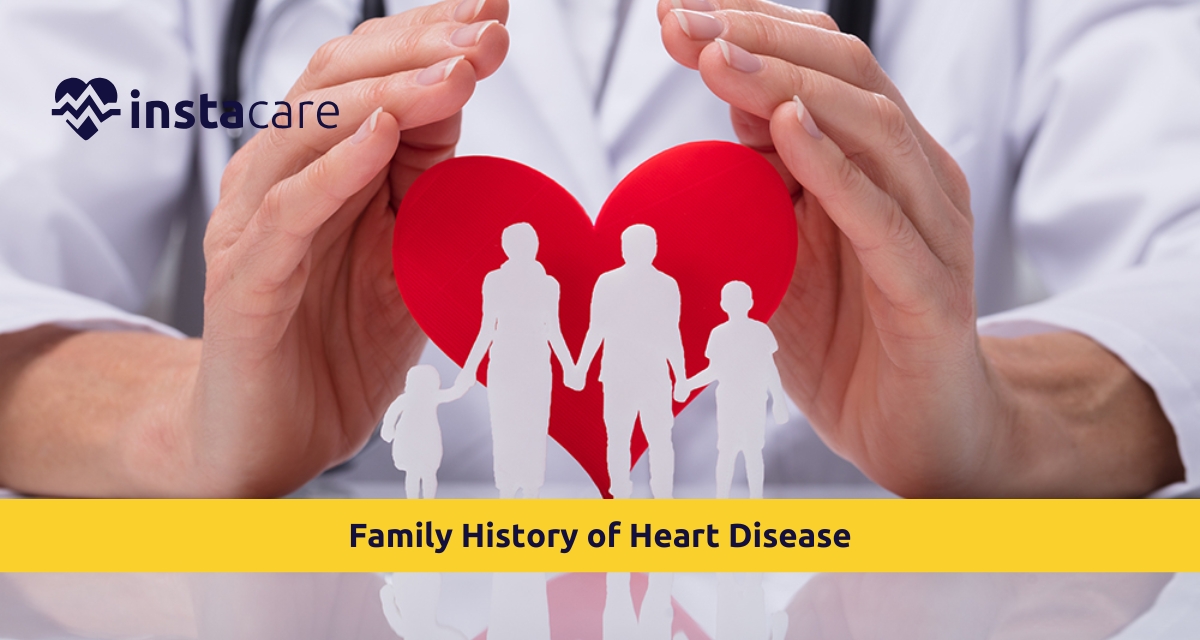This disease accounts for a large percentage of deaths in many parts of the world. And thus, preventing it requires knowledge of its risk factors. The first and foremost of these risk factors is that it may be supported by a positive family history to heart disease. If heart diseases run in your family, learn to defend your health too. This article discusses implications of a family history of heart disease, steps that you can take to minimize the risk, and the value of regular health check-ups.
Understanding Family History and Its Impact
What Constitutes Family History of Heart Disease?
Family history refers to the presence of heart disease among your immediate relatives, including parents, siblings, and grandparents. In assessing the risk of heart disease, most healthcare providers often consider:
- Early age of manifestation: The higher the age at
presentation of heart diseases in the first-degree relative, the higher risk to
the latter generations.
- Kind of heart diseases: Heart disease such as CAD,
myocardial infarction, heart failure, and arrhythmias had a very high risk.
- Others: The overall risk in a person's life increases with
presence of other disease or health condition such as diabetes or hypertension
among the relatives
Genetic factor
Genetics are the biggest cause for heart disease. Some
people may have genetic marks that predispose them to some conditions such as
high cholesterol and hypertension. The two can expose one to risks of heart
diseases. However, it is not the only contributing factor to the disease. The
lifestyle and the environment play their part in making one's health better or
worst.
Ways to Protect Your Heart Health
1. Familiarize Yourself with Your Family History
This will help you understand your family history. Take a
record of the health history of your first-degree relatives including heart
disease and related diseases. This information will help you as well as your
healthcare provider in risk assessment and then provide you with an appropriate
prevention strategy.
2. Regular Follow-Ups
Going regularly for visits to your healthcare provider is important in monitoring your heart health. You can do the following during these check-ups:
- Discuss Family History: Share your family history with your
provider who can then assess your risk and recommend screenings and tests.
- Monitor Blood Pressure and Cholesterol: Monitoring is very
important since it can diagnose these problems in its early stages so that the
needed intervention would be done.
- Other Risk Factors Evaluation: Your doctor will be able to
evaluate some of the lifestyle factors such as diet, physical activity, and
stress level which may lead to heart disease.
3. Balanced Diet
Diet is considered the most essential factor for the health of your heart. Some of the recommendations for heart healthy diets are given below.
- Fruits and vegetables must be taken in more quantity. This
must be taken preferably in five portions every day. Fruits and vegetables help
provide antioxidants, vitamins, and minerals for keeping the body fit and fine.
- Take whole grains: Grains are refined using whole grains.
High in fiber brown rice and quinoa; bread and similar foods high in fiber can
help in lowering cholesterol.
- Saturated and Trans Fats. Limit the amounts from red meat
and full-fat dairy products and get rid of all Trans fats from packaged foods.
Replace these saturated and Trans fats with fats that are generally good, which
can be found in avocados, nuts, olive oil.
- Monitor the sodium intake. When more sodium than required is
taken, then high blood pressure will be caused. Less than 2,300 milligrams of
sodium should be taken and 1,500 if one already has high blood pressure.
Take fewer added sugars: Limitation of excess added sugars
limits obesity and the resultant possible cardiovascular disease
View More: What Is A Dangerous Heart Rate
4. Exercise regularly
These activities are useful for maintaining the health of the heart of a person this is in regard to aerobic exercises where the individual should have done moderate aerobic activity for on average 150 minutes in the week. Some of what is regarded as mild exercises is for example: walking, swimming, cycling, and dancing and among others. Among these would be walking swimming cycling dancing and in fact any activity that is likely to drain a lot of energy out of the body.
- Lower Blood Pressure: From exercising, your circulation will
lower and pressure to your heart will be lowered
- Healthy weight and, thus lowering the risks for heart
diseases.
- Improve Cholesterol Levels: Exercise can raise HDL, or good,
cholesterol, and lower LDL, or bad, cholesterol.
5. Reduce Stress
- Chronic stress, extreme and unremitting, contributes to
heart disease. Acquiring stress-reducing skills is helpful:
- Mindfulness Practices: Meditation, yoga, deep breathing can
all help to reduce tension.
- Leisure Activities: Hobbies or interests that offer some
release from stress.
- Re-establish Contacts with Friends/Family: Be available to reconnect once again with your network; register in a support group and discover camaraderie.
6. Smoking or Cigarette Quantity
This one is a potential cause of heart diseases; thus if you
smoke, stop it, or if you do not know how to quit smoking, seek help. Stop
drinking alcohol, to some extent; permanently; if an alcoholic beverage is
inevitable, take no more than one if you are a woman or two if you are a man.
7. Pay attention to the symptoms that require an early treatment
Some of the most important aspects include recognizing the signs and symptoms of heart disease. They are as follows:
- Chest Pain or Discomfort: The discomfort could be in the
form of pressure, tightness, or fullness in the chest.
- Shortness of Breath: It may happen along with or without
chest pain.
- Pain in Other Places: Pain or discomfort in arms, back,
neck, jaw, or stomach also leads to heart-related problems.
- Other symptoms : Diarrhea, Vomiting and sweating can be
symptoms of a heart condition also.
If any of these happen, go seek a doctor ASAP.
Role of Support and Education
Learn about heart disease and risk factors. You may attend
support groups or community health programs on heart health. The services will
avail all the information needed and encourage you as you strive to care for
your heart.
Conclusion
If your family had a history of heart illnesses, your
chances are also high; however, it is not a certainty that you will also suffer
heart problems. But there are things your can do today to help prevent heart disease
and avoid getting sick; Appropriate planning and actions such as a healthy
diet, regular exercise, stress control, and screening appointments.
A lifetime of knowing, learning, and retention through
constant self-care help prevent heart disease. So, arm yourself with knowledge
and take charge of your heart health today.
Please book an appointment with the best Cardiologist in Lahore, Karachi, Islamabad, and all major cities of Pakistan through InstaCare, or call our helpline at 03171777509 to find a verified doctor for your disease.











